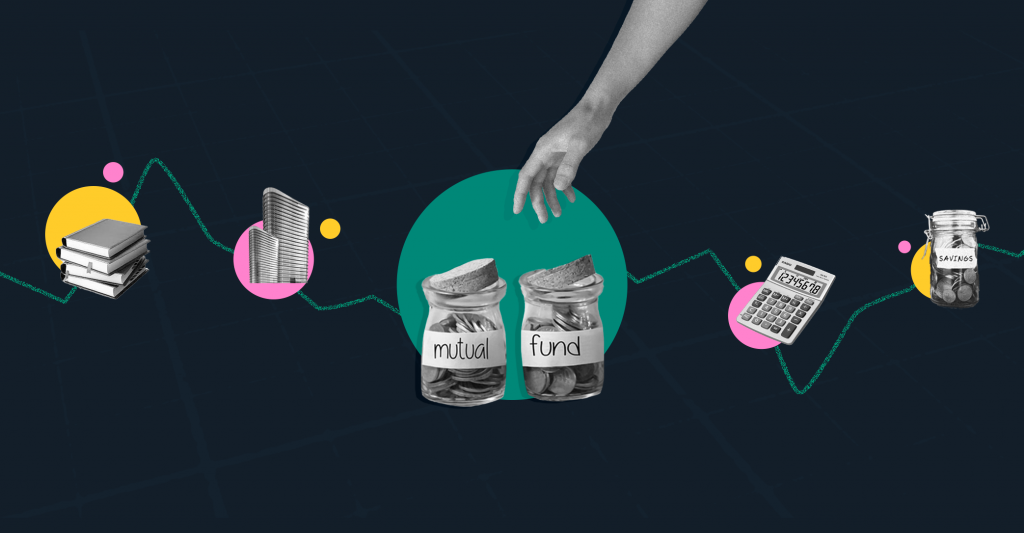Last Updated on Apr 28, 2025 by vanessa sequeira
In the world of investing, finding the right balance between risk and reward is key. While equities offer the potential for higher returns and debt provides stability, some investors look for an option that carefully blends the two. This is where arbitrage mutual funds come in. By taking advantage of price differences between the cash and derivatives markets, these funds aim to deliver equity-like returns with relatively lower volatility. In this blog, let’s explore how arbitrage funds work, the arbitrage funds meaning, features, benefits, taxation and more.
Table of Contents
Best Arbitrage Funds in India
| Name | AUM (Cr) | CAGR 3Y (%) | Expense Ratio (%) | CAGR 5Y (%) |
| Invesco India Arbitrage Fund | 19,675.15 | 7.66 | 0.39 | 6.33 |
| Kotak Equity Arbitrage Fund | 60,373.17 | 7.56 | 0.44 | 6.30 |
| Tata Arbitrage Fund | 12,789.92 | 7.45 | 0.3 | 6.29 |
| Edelweiss Arbitrage Fund | 14,003.17 | 7.48 | 0.36 | 6.25 |
| Nippon India Arbitrage Fund | 13,733.37 | 7.33 | 0.35 | 6.17 |
| Aditya Birla SL Arbitrage Fund | 14,236.09 | 7.38 | 0.29 | 6.14 |
| Axis Arbitrage Fund | 5,746.00 | 7.28 | 0.31 | 6.13 |
| UTI Arbitrage Fund | 6,614.10 | 7.29 | 0.28 | 6.10 |
| Bandhan Arbitrage Fund | 7,877.31 | 7.40 | 0.36 | 6.10 |
| ICICI Pru Equity-Arbitrage Fund | 25,726.55 | 7.33 | 0.39 | 6.06 |
Note: The data is as of 25th April 2025 and derived using Tickertape Mutual Fund Screener with the following parameters:
- Category: Hybrid Funds > Arbitrage Funds
- CAGR 5Y: Sorted from high to low
Overview of the Top Arbitrage Mutual Funds
Invesco India Arbitrage Fund
Invesco India Arbitrage Fund aims to generate income by capitalising on arbitrage opportunities that arise due to price differences between the cash and derivatives markets. Additionally, the fund seeks to enhance returns by investing surplus cash in fixed income instruments.
Kotak Equity Arbitrage Fund
Kotak Equity Arbitrage Fund strives to deliver capital appreciation and income by primarily investing in arbitrage opportunities within the cash and derivatives segments of the equity market. The fund also allocates the remaining portion of its portfolio to debt and money market instruments.
Tata Arbitrage Fund
Tata Arbitrage Fund targets reasonable returns by predominantly investing in arbitrage opportunities available in the cash and derivatives segments of the equity markets. As one of the high-return arbitrage funds, it complements this strategy by investing the balance in debt and money market instruments.
Edelweiss Arbitrage Fund
Edelweiss Arbitrage Fund seeks to achieve capital appreciation and income by mainly investing in arbitrage opportunities across the cash and derivative segments of the equity markets, as well as within the derivatives segment itself. As one of the top arbitrage mutual funds, it also allocates the balance to debt and money market instruments.
Nippon India Arbitrage Fund
Nippon India Arbitrage Fund aims to generate income by leveraging arbitrage opportunities existing between the cash and derivatives markets and within the derivatives segment. As one of the best arbitrage funds for SIP, it also invests in debt securities and money market instruments to complement its core strategy.
What are Arbitrage Funds?
Arbitrary, as a word, means something unrestrained or determined by chance rather than a principle or a system. Arbitrage is a trading strategy that involves buying and selling the same or similar assets in different markets to take advantage of price differences. Arbitrage mutual funds take root from a similar situation. At the outset, it may seem to function in an arbitrary manner, but rest assured, mutual funds rarely leave things to chance.
An arbitrage fund takes advantage of the changing price of the securities across different markets to buy and sell the securities simultaneously to pocket the differential. An arbitrage fund may leverage the cash market and the derivative markets to generate returns.
The volatility of the asset decides the value of the returns. Arbitrage funds help the investor make a profit by capitalising on the difference in the price of the present and future securities.
Arbitrage funds are essentially hybrid funds. This means they invest across asset classes like equity and debt in varying proportions. These types of mutual funds appeal to investors who plan to generate revenue out of the volatile equity market but have a portion invested in the safer debt market.
How do Arbitrage Funds Work?
The equity share of company ‘XYZ’ trades at Rs. 1,500 in the cash market and at Rs. 1,515 in the futures market. The fund manager would buy shares of this company at Rs. 1,500 from the cash market and immediately set a future contract (in the futures market) to liquidate them at Rs. 1,515. When the prices coincide, the sell order of the shares in the future market at Rs. 1,515 is executed. This generates a risk-free return of Rs. 15 for every share, less the transaction costs.
In another situation, let us assume the fund manager feels that the prices may fall in future. They capitalise on the situation and enter into a long contract in the futures market. In such a scenario, they will short-sell your shares at Rs. 1,515 in the cash market. At the time of expiry, they will also execute a buy order of the shares at Rs. 1,500 in the futures market to earn a profit of Rs. 15 per share and cover their position.
Another way of working with arbitrage funds is that you have the option of purchasing an equity share of Rs. 100 at the NSE and liquidating it at the BSE at Rs. 120 to get a profit without taking any risk.
Features of Arbitrage Funds
Let’s have a look at the key features of arbitrage funds:
- Arbitrage funds are mutual funds that come with the purpose of providing their investors with a balance of risk and return.
- These are actively managed funds and generate profit by trading on different stock exchanges.
- These types of funds are not affected negatively by fluctuations in market prices.
- They keep their investors stress-free because the buying and selling prices are already known to the fund manager, turning the market uncertainty and instability into a blessing for the investors.
- Arbitrage funds help investors avoid a majority of the risks associated with equity market volatility while giving investors the opportunity of investing in equity.
- Another very important feature of arbitrage investment is that they are very popular among investors with low-risk capacity.
- When the arbitrage fund performance is low, the fund manager allocates a part of the pooled investor capital into choice debt instruments that would generate a profit and have a high credit quality, like debentures, government bonds and term deposits.
So the money is always working in a safer environment to grow into a corpus over time. Short-term arbitrage funds may be volatile but have historically returned at par with liquid funds over the long term.
Who Should Invest in Arbitrage Funds?
As we have seen, the primary feature of arbitrage funds is that they encash low-risk buy-and-sell deals in the futures and cash markets. You can easily equate the level of risk involved in these funds with the risk involved in pure debt funds.
Therefore, low-risk arbitrage funds are best suited for investors who wish to take advantage of the equity market without having to deal with the high risk associated with it. Thus, if you are someone who is averse to risk but exploring options to generate higher returns than from the debt market, arbitrage mutual fund options may be considered and take advantage of the market fluctuations.
Things to Consider While Investing in Arbitrage Funds 2025
There are certain crucial things that you need to take care of as an investor are:
- Risk involved: As there is no second party involved in this trade and it is conducted solely on the stock market, it is free of counterparty risks. You are not exposed to price fluctuations in equities, even when selling or buying shares in cash or future markets. However, all investments are subject to market risk, and returns are not guaranteed.
- Return: Arbitrage funds for returns can actually get you a decent profit if you can pick the right fund to invest in. Traditionally, these funds have given investors 7-8% returns over a time span of 5-10 yrs. Though there is no guarantee of the returns on these funds, they are great, low-risk options in a volatile market.
- Cost of investment: You will have to bear a cost when investing in hybrid arbitrage funds, known as the expense ratio. It is an annual fee that mutual funds charge towards the management of your money. Expressed as a percentage of the assets of the fund, it includes the fund management charges, fund manager fees, administration, research and communication charges, and commissions and brokerages. High-return arbitrage funds may levy an extra load for 30 to 60 days, which would further add to the expense ratio of your fund.
Arbitrage Funds Taxation as per the Union Budget 2024-2025
Arbitrage funds are treated just as equity funds for the purpose of arbitrage fund taxation. You make short-term capital gains (STCG) if you stay invested for a time period of less than a year, which are taxable at the rate of 20%. Your gains will be considered long-term capital gains (LTCG) if you stay invested for more than a year. Such LTCG on arbitrage funds are taxed at 12.5% without any indexation benefits.
Advantages of Investing in Arbitrage Funds
The key benefits of arbitrage funds are listed below:
- Low risk: The primary benefit of high-potential arbitrage funds is that they rank very low in the risk-o-metre. The buying and selling rates are already known to the fund manager, who can manage associated risks. A part of arbitrage funds also goes to debt securities, which are usually very stable.
- Liquidity and lock-in: There is no long-term commitment involved as the securities are simultaneously bought and sold. However, given the higher exit load charges, it may make sense to stay invested for at least three months in a volatile market period. That said, all funds tend to perform the best over the long term.
- Taxed as equity funds: Arbitrage funds invest primarily in equities. This is why they are taxed as equity funds, and the tax rate is much lower for them than the ordinary income tax rate levied on other types of funds, such as gold ETFs or debt funds.
- Balanced funds: Another benefit of arbitrage funds is that they are balanced funds and are a hybrid of both debt and equity, with a focus on equity, thus capturing the benefits of both asset classes.
Risks of Investing in Arbitrage Funds
While arbitrage funds are considered relatively stable compared to equity funds, they are not devoid of risks. Before choosing the top arbitrage funds for your portfolio, it’s essential to understand the following risks:
- Market Liquidity Risk: Arbitrage fund strategies for returns depend on the availability of price differences between cash and derivatives markets. Low liquidity in either market can hinder the execution of trades and adversely impact arbitrage funds returns.
- Interest Rate and Credit Risk: Arbitrage funds are hybrid funds that invest a portion of their assets in debt instruments, typically in term deposits or very short-term debt. While interest rate and credit risks exist, these risks are generally minor due to the nature of the best arbitrage funds India.
- Low-Return Potential in Flat Markets: Arbitrage opportunities are scarce when markets are trading flat or exhibit low volatility. In such conditions, arbitrage funds may deliver below-average returns, which is one of the most notable risks associated with these funds.
- Expense Ratio Impact: Even the top arbitrage mutual funds rely on executing a high volume of trades to capitalise on price differences, which can lead to relatively high expense ratios. These costs can erode the arbitrage fund returns, especially in periods of limited arbitrage opportunities.
- Settlement Risk: The smooth execution of arbitrage fund strategies relies on timely settlement between cash and derivatives markets. Any delays or discrepancies in settlement can affect the fund’s overall performance.
Arbitrage funds vs FD
Here’s a table to explain the difference between arbitrage funds and Fixed Deposits (FD).
| Feature | Arbitrage Fund | FD |
| Returns | Returns are linked to the market. Hence not guaranteed. | Assured returns based on the bank/financial institution rate. |
| Risk | High risk compared to FDs | Low-risk |
| Taxation | STCG is taxed at 15%, and LTCG is taxed at 10%. | The interest earned is added to the investor’s income and taxed as per their income tax slab. |
| Premature withdrawal | An exit load is levied if the fund is withdrawn within 30 or 60 days of buying. | A premature withdrawal fee is levied as per the bank/financial institution’s norms. |
Conclusion
Overall, arbitrage funds come with both pros and cons. It is important for an investor to analyse and understand the working of a fund before investing. Use Tickertape Mutual Fund Screener to analyse different mutual funds available in the market. Once you’ve invested in your preferred fund, use Tickertape Mutual Fund Portfolio, which can help to keep an eye on the fund with crucial parameters.
Frequently Asked Questions About Arbitrage Funds
What is arbitrage fund?
Arbitrage funds are hybrid funds that generate returns by simultaneously buying and selling securities in different markets to make use of different prices.
For how long should you stay invested in arbitrage funds?
Given its volatility in the short run and to save on taxes, you can stay invested in arbitrage funds for more than a year. However, it is important to consider your investment objective and stay invested accordingly.
What kind of returns can one expect from arbitrage funds?
Returns are generally moderate and depend on the availability of arbitrage opportunities, which are more prevalent in volatile markets.
What are the risks associated with arbitrage funds?
While considered low-risk, they may underperform in stable markets with fewer arbitrage opportunities and can have higher expense ratios due to frequent trading.
How do arbitrage funds compare to debt funds?
Arbitrage funds have a risk profile similar to debt funds but are taxed as equity funds, potentially offering better post-tax returns for short-term investments.
- Long Term Mutual Funds in India (2025) - Oct 29, 2025
- Muhurat Trading in 2025 – Meaning, Benefits, Latest Date and Timings - Oct 8, 2025
- How To Withdraw Mutual Funds? - Jun 6, 2025





